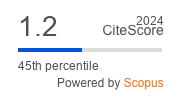Development of Radiopharmaceutical Composition for Radionuclide Diagnostics of Malignant Melanoma
https://doi.org/10.33380/2305-2066-2020-9-4-66-71
Abstract
Introduction. Skin cancers came first in Russia in numbers of oncological diseases. Melanoma, making up only a small part of these cases, leads to the most serious consequences. The nuclear medicine methods application is necessary at the stages of clarifying the diagnosis, searching for remote metastases and the treatment monitoring. The work is devoted to one of the stages of the radiopharmaceutical development for the diagnostics of malignant melanoma and its metastases based on the synthetic analog of α-melanocyte stimulating hormone (SAH) and radionuclide Tc-99m.
Aim. The selection of optimal conditions for the preparation of the SAH ∙ 99mTc complex and the study of the using possibility it as a diagnostic tool in in vitro experiments.
Materials and methods. Experimental work was carried out to optimize the conditions for obtaining the complex compound SAH ∙ 99mTc. The binding and internalization of this compound by B16-F0 melanoma cells has been studied.
Results and discussion. The results of labeling SAH with a 99mTc radionuclide under a wide range of conditions were obtained both by the direct method and using the intermediate complex. The target compound rapidly binds to B16-F0 melanoma cells. The degree of internalization is more than 85 %.
Conclusion. Based on the results of chemical experiments and data from in vitro experiments, optimal conditions for obtaining a complex compound SAH ∙ 99mTc with a radiochemical yield of more than 90 % were found. The mechanism of binding of this compound to malignant melanoma cells has been established.
About the Authors
O. E. KlementyevaOlga E. Klementyeva
46, Zhivopisnaya str., Moscow, 123182
A. B. Bruskin
Russian Federation
Alexander B. Bruskin
46, Zhivopisnaya str., Moscow, 123182
K. A. Lunyova
Kristina A. Lunyova
46, Zhivopisnaya str., Moscow, 123182
V. B. Bubenshchikov
Viktor B. Bubenshchikov
46, Zhivopisnaya str., Moscow, 123182
K. E. Ternovskaya
Kristina E. Ternovskaya
46, Zhivopisnaya str., Moscow, 123182
A. S. Lunev
Aleksandr S. Lunev
46, Zhivopisnaya str., Moscow, 123182
G. E. Kodina
Galina E. Kodina
46, Zhivopisnaya str., Moscow, 123182
References
1. Annual Statistic Report 2018 of July 31, 2019. Ministry of Health of the Russian Federation. Available at: https://www.rosminzdrav.ru/ministry/61/22/stranitsa-979/statisticheskie-i-informatsionnyematerialy/statisticheskiy-sbornik-2018-god. Accessed: 29.06.2020. (In Russ.).
2. Cancer Statistics Review (CSR) 1975–2017. National Cancer Institute. Released April 15, 2020. Available at: https://seer.cancer.gov/csr/1975_2017/ Accessed: 25.05.2020.
3. Russian Cancer Portal. Available at: https://www.oncoforum.ru/o-rake/statistika-raka/statistika-smertnosti-ot-raka-v-rossii.html Accessed: 15.06.2020. (In Russ.).
4. Rosenkranz A. A., Slastnikova T. A., Durymanov M. O., Sobolev A. S. Malignant melanoma and melanocortin receptor 1. Biokhimiya = Biochemistry. 2013;78(11):1564–1575. (In Russ.).
5. Salazar-Onfray F., Lopez M., Lundqvist A. Tissue distribution and differential expression of melanocortin 1 receptor, a malignant melanoma marker. British Journal of Cancer. 2002;87(4):414–422. DOI: 10.1038/sj.bjc.6600441.
6. Zhang C., Lin K.-Sh., Benard F. Molecular Imaging and Radionuclide Therapy of Melanoma Targeting the Melanocortin 1 Receptor. Molecular Imaging. 2017;16:1–15. DOI: 10.1177/1536012117737919.
7. Eberle A. N., Bhimsen R., Qi M. B., Bigliardi P. L. Synthetic Peptide Drugs for Targeting Skin Cancer: Malignant Melanoma and Melanotic Lesions. Current Medicinal Chemistry. 2017;24(17):1797–1826. DOI: 10.2174/0929867324666170605105942.
8. Banerjee S. R., Maresca K. P., Francesconi L., Valliant J., Babich J. W., Zubieta J. New Directions in the Coordination Chemistry of 99mTc: A Reflection on Technetium Core Structures and a Strategy for New Chelate Design. Nucl Med Biol. 2005;32(1):1–20. DOI: 10.1016/j.nucmedbio.2004.09.001.
9. Russia pharmacopoeia monograph 1.11.0001.15. Radiopharmaceutical drugs. Available at: https://pharmacopoeia.ru/ofs-1-11-0001-15-radiofarmatsevticheskie-lekarstvennye-preparaty/ Accessed: 25.06.2020. (In Russ.).
Review
For citations:
Klementyeva O.E., Bruskin A.B., Lunyova K.A., Bubenshchikov V.B., Ternovskaya K.E., Lunev A.S., Kodina G.E. Development of Radiopharmaceutical Composition for Radionuclide Diagnostics of Malignant Melanoma. Drug development & registration. 2020;9(4):66-71. (In Russ.) https://doi.org/10.33380/2305-2066-2020-9-4-66-71










































